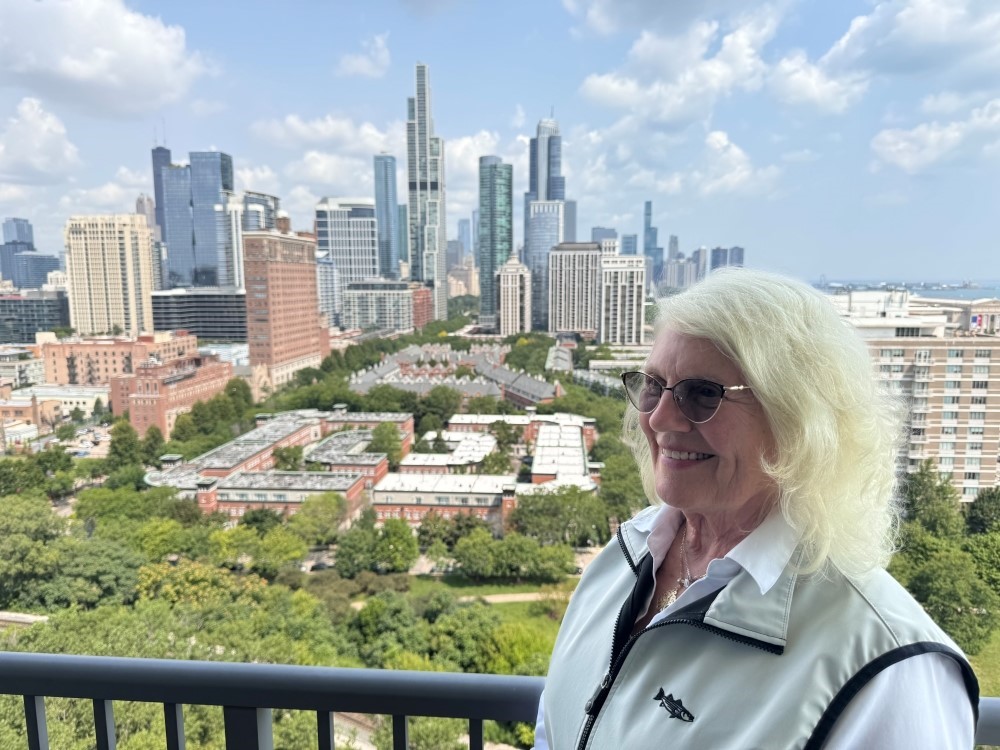Birgitta Kuehn is concerned about the direction of Plymouth’s Planning Board – especially now that she no longer serves on it.
Kuehn has moved to Chicago to follow her husband, who has taken a new job there. It is a return to her hometown of sorts, as she grew up in Oak Park, Illinois, and raised her family in Evanston, Illinois, where she earned an MBA at Northwestern University and worked at a major health center.
Kuehn, who resigned July 25, served on the board for five years.
In a telephone interview with the Independent, Kuehn said she worries that board is not doing enough to slow the disappearance of undeveloped spaces in Plymouth.
“You’ve come to Plymouth for a reason,” she said. “And I believe that the reasons are the beauty of the community, which has to do with its natural resources and the ability to use those natural resources with friends and family, and that’s being lost.”
She also frets about the rising cost of living as continued development places greater demands on schools, first responders, and roads. She pointed to the recent 6.9 percent increase in property taxes, as an example of the growing burden on property owners.
Kuehn also expressed concern about the increasing debt load being taken on by the Community Preservation Committee, which recently proposed to increase its debt to $17 million to fund new projects. Ultimately, she said, taxpayers would be liable for that money.
Kuehn was particularly critical of an expenditure recently recommended for funding by the committee – $3.2 million to subsidize 24 units of affordable housing in an $8.25 million project by developer Rick Vayo across the street from the library on South Street. Those funds would allow a $500 decrease in rent, from about $2,800 to $2,300 a month for the one-bedroom apartments.
Kuehn argues that the reduction in rent does not justify the subsidy, and points instead to a project at the Redbrook development, in South Plymouth, as the kind of affordable housing project the town should promote. That project, being built by the Grantham Group, would create 62 one-bedroom apartments, some with rents discounted as deeply as 70 percent.
Kuehn said she developed a reputation on the Planning Board as someone who questioned whether the interests of developers align with the interests of residents. She has often clashed with fellow board members, whom she accuses of being acquiescent to developers.
She pointed to a recent petition from developer Tom Drummond that was considered during her last appearance on the board on July 24. Drummond asked the board to sponsor a proposal to go before Town Meeting that would expand the village open space bylaw to the waterfront district. The village open space option is a special permit granted by the Planning Board that allows developers to get around zoning restrictions.
Open space zoning has been used in such residential developments as Pinehills and Redbrook. It gives developers flexibility to concentrate development on part of their property while preserving open space in other parts and allows them to build a mix of housing options.
Drummond wants to develop four acres of land just south of Hedge Road, on the ocean in North Plymouth.
“It’s a beautiful piece of oceanfront,” Kuehn said, but it has no street frontage. The Planning Board would have to waive frontage requirements and allow Drummond to create access through a right of way. The area is zoned for multifamily housing, but the developer wants to build up to five large single-family homes. To develop the property, he has asked for all waterfront development in town to be rezoned for village open space design, which would give him concessions such as building large single-family homes on a four-acre lot.
During the meeting, Lee Hartmann, director of planning and development, said that the open front would remain private.
“So, who benefits from this?” Kuehn asked.
The developer has promised to make the oceanfront open space that would be accessible to the public, but Kuehn said the board should press for guarantees that Plymouth residents would have access. In the past, she said, developers have generally not opened space to the public, though there are exceptions, such as a walkway next to Lobster Hut.
Developers have also given land to the town and the town can mandate a deed restriction that keeps such parcels as open space, but by law, the town cannot require a developer turn over land for public use.
As more land gets developed, she said, the town is going to have a harder time keeping its zoning regulations in place because developers will keep pushing for changes in the rules.
“Protecting land in Plymouth is the job of the Planning Board,” Kuehn said, adding that, in her opinion, the board is not doing that.
Kuehn also had some parting advice for Plymouth residents now that she is no longer one: pay attention to the Planning Board.
“It’s hugely important for the citizens of Plymouth to begin thinking about vetting candidates for positions on the Planning Board,” she said. “Everything that they see around them has been a decision of the Planning Board.”
Fred Thys can be reached at fred@plymouthindependent.org.

